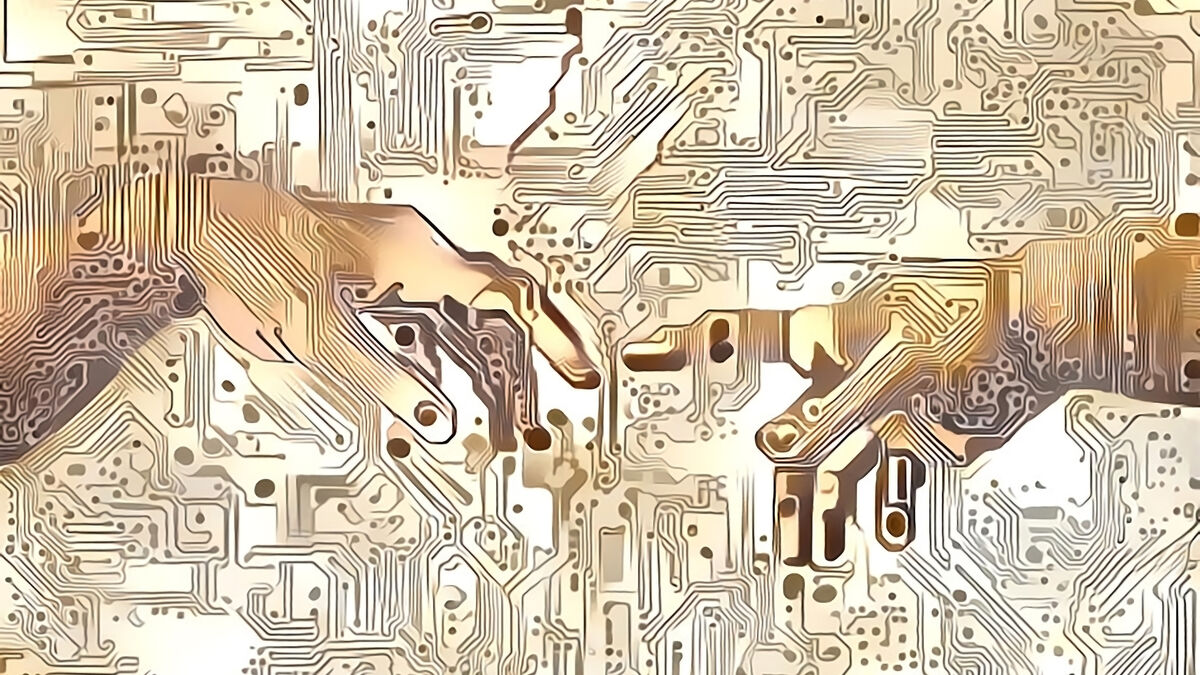New God Argument Version 3.3
Lincoln Cannon
3 June 2016 (updated 3 January 2026)
I’ve published version 3.3 of the New God Argument. The changes since version 3.2 are to simplify language in the propositions and to adjust the definitions accordingly. Most are minor.
But one change is particularly worth direct attention. I’ve combined “superintelligent posthumanity” into “superhumanity,” reflecting provided definitions of “superintelligence” and “posthumanity.” These changes will appear in an article I’m writing about Mormon Transhumanism, which will be part of a collection of academic works on Transhumanism to be published later this year or early next.
Summary
The New God Argument is a logical argument for faith in God. Given assumptions consistent with contemporary science and technological trends, the argument proves that if we trust in our own superhuman potential then we should also trust that superhumanity probably would be more compassionate than we are and created our world. Because a compassionate creator may qualify as God in some religions, trust in our own superhuman potential may entail faith in God, and atheism may entail distrust in our superhuman potential.
Faith Assumption
The Faith Assumption is a proposition that humanity will not become extinct before evolving into superhumanity. The proposition may be false. However, to the extent we do not know it to be false, we may have practical or moral reasons to behave as if it is true. In any case, the Faith Assumption is a common aspiration among secular advocates of technological evolution, and it may be consistent with the religious doctrine of theosis, also known as divinization or deification: the idea that humanity should become God.
[F1 assumption] humanity will not become extinct before evolving into superhumanity
Compassion Argument
The Compassion Argument is a logical argument for trust that superhumanity probably would be more compassionate than we are. The basic idea is that humanity probably will continue to increase in decentralized destructive capacity, so it probably will stagnate or destroy itself unless it increases in compassion. If we trust in our own superhuman potential, we should trust that superhumanity would be more compassionate than we are.
[CO1 assumption] EITHER humanity probably will become extinct before evolving into superhumanity OR superhumanity probably would not have more decentralized destructive capacity than humanity has OR superhumanity probably would be more compassionate than we are
[CO2 assumption] superhumanity probably would have more decentralized destructive capacity than humanity has
[CO3 deduction from CO1, CO2, and F1] superhumanity probably would be more compassionate than we are
Creation Argument
The Creation Argument is a logical argument for trust that superhumanity probably created our world. The basic idea is that humanity probably would not be the only or first to create many worlds emulating its evolutionary history, so it probably will never create many such worlds unless it is already in such a world. If we trust in our own superhuman potential, we should trust that superhumanity created our world.
[CR1 assumption] EITHER humanity probably will become extinct before evolving into superhumanity OR superhumanity probably would not create many worlds emulating its evolutionary history OR superhumanity probably created our world
[CR2 assumption] superhumanity probably would create many worlds emulating its evolutionary history
[CR3 deduction from CR1, CR2, and F1] superhumanity probably created our world
God Conclusion
The God Conclusion is a logical deduction for faith in God. Given assumptions consistent with contemporary science and technological trends, the deduction concludes that if we trust in our own superhuman potential then we should also trust that superhumanity probably would be more compassionate than we are and created our world. Because a compassionate creator may qualify as God in some religions, trust in our own superhuman potential may entail faith in God, and atheism may entail distrust in our superhuman potential.
[G1 deduction from CO3 and CR3] BOTH superhumanity probably would be more compassionate than we are AND superhumanity probably created our world
Definitions
faith : trust : belief that something is reliable or effective for achieving goals
compassion : capacity to refrain from thwarting or to assist with achieving goals
creation : the process of modifying situations to achieve goals
intelligence : capacity to achieve goals across diverse situations
superintelligence : intelligence that is greater than that of its evolutionary ancestors in every way
humanity : all organisms of the homo sapiens species
posthumanity : evolutionary descendents of humanity
superhumanity : superintelligent posthumanity
God : superhumanity that is more compassionate than we are and that created our world
You can learn more about the argument at its website. It includes explanatory videos, articles, and support for each of its assumptions. If you know of other resources to which the website should link, please let me know!



